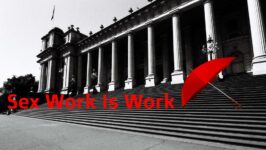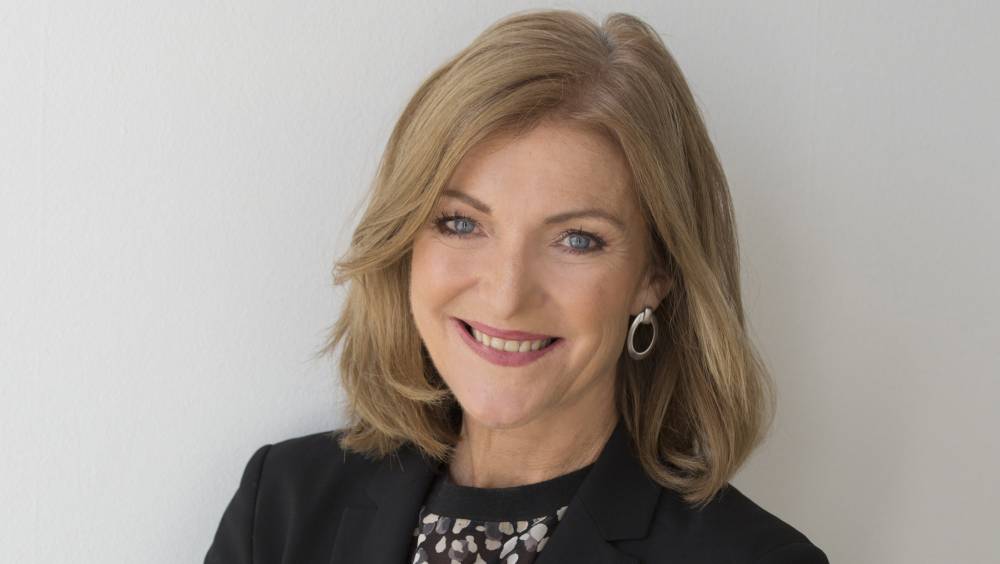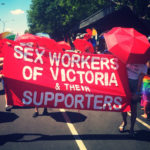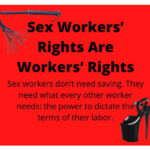Decriminalising Victorian Sex Work: An Interview With Reason’s Fiona Patten

The state of NSW decriminalised sex work in 1995. The criminal sanctions relating to it were removed, in recognition that sex work is a legitimate form of work and should be treated as such.
Since then, the entire nation of New Zealand has done the same, as did the Northern Territory in late 2019.
In mid-2016, Amnesty International adopted a policy to uphold the human rights of sex workers, which recognises decriminalisation as best practice.
And right now, the Andrews government is considering laws to decriminalise the Victorian sex industry, based on the findings of the Parliamentary Review to Make Recommendations for the Decriminalisation of Sex Work, which was led by Reason MLC Fiona Patten.
The review recommended the full discrimination of the entire sex industry, including street-based work, which is currently criminalised. The industry would therefore be regulated like all other industries, in terms of occupational health and safety, as well as planning.
Sex work is legitimate work
The Victorian sex industry has been partially legalised since the 1980s. Today, this licensing system is governed by the Sex Work Act 1994 (VIC). When its predecessor the Prostitution Regulation Act 1986 (VIC) was passed, the laws were ground-breaking in their recognition of sex work as work.
However, what has developed under these laws is a two-tiered licensing system, which leaves certain aspects of the work – such as private residence-based and street-based work – illegal, whilst the licensing system is so overregulated that it makes operating outside of it appealing.
As Patten pointed out in her recent opinion piece in the Age, the 1985 inquiry into the Victorian sex industry headed by Professor Marcia Neave had seen the state sex worker collective of the time calling for the decriminalisation model, “although it wasn’t called that” back then.
The Reason Party leader further underscored that in reforming the local industry it is vital that the discrimination and stigma attached to it is tackled as well, as these prejudices cause violence against sex workers, along with creating barriers to accessing health services and housing.
Progressive change
Victorian sex workers have been demanding the decriminalisation of the industry they work within for many years. They assert that the two-tiered system leaves many local workers classed as criminals, while it creates poor health and safety outcomes for all.
And with Fiona Patten on the case, they should be quite confident of seeing decriminalisation come to fruition.
The Reason Party leader was successful in instigating the laws that saw the establishment of a legal medically supervised injecting facility, as well as state assisted dying laws.
Sydney Criminal Lawyers spoke to Fiona Patten about why sex work should be treated in the same way as any other form of work, the improvements decriminalisation will bring to the wellbeing of sex workers, and the problematic Nordic model that has been gaining traction in Europe.

Firstly, when you conducted the Victorian parliamentary inquiry into state sex work laws you consulted those working in the industry.
Sex worker organisations always stress the need for peer-led or peer-informed initiatives. Fiona, why is that important?
These laws predominantly affect the people working in the industry. So, if you want to change these laws, you need to understand what people who work in the industry want, and how they are affected or disadvantaged by the existing laws.
As someone who has come from a sex worker background and a sex worker rights background, I fully understand that this needs to be a very inclusive process.
At the forefront, it needs to include those most affected by the laws, and that is, those who are working in the industry.
You assert sex work should be treated like any other legitimate form of work. However, there are laws in place that suggest otherwise, and meanwhile sex work continues on in the community.
What would you say it means for sex work to continue to be treated differently to other forms of work?
Over the years that I’ve been involved in the industry, I’ve been told by numerous workers that the work is not hard, but the discrimination and stigma that surrounds it is. And the law assists in the continuation of that stigma and discrimination.
In many cases, not only does the law not protect those working in the industry, but actually, it makes it more dangerous for people who work in the industry. It has that perverse effect.
Victoria was one of the first jurisdictions in the world to acknowledge that suppressing or prohibiting the sex industry does not work, and that a form of regulation would go towards protecting the people who work in the industry, but also provide greater security and surety for the community.
So, Victoria was a bit of a trailblazer back in the 1980s.
Other states have since followed. We have seen most states in Australia now update their laws to reflect that just trying to suppress this industry has not worked for the last couple of hundred years in Australia and, probably, the last few thousand years around the world.
Directly to your question, in treating the industry as other, it is saying that it’s somewhat more dangerous, that it needs greater protection, or that the community needs to be protected from it.
This goes to disadvantaging those who work in the industry, but also, as I say, it creates a two-tier system, where you have some people who are able to operate within the law, and those who cannot.
This creates these very mirky, twilight areas where people are having to work in the shadows.
So, they’re frightened to contact the police after a robbery or violence or blackmail or whatever the crime may be, because they’re fearful they will be prosecuted for the work that they do.
So, in Victoria, you’ve got a licensing system, which means that certain aspects of the industry are legal, while others remain illegal.
That’s right. Certainly, street work has remained illegal. Although, I would have to say, the laws around street work in Victoria have not necessarily been enforced. The police have really been taking a harm minimisation approach to street work.
But the laws that surround the licensing of a brothel are extremely difficult and complicated. They really limit the number of people who are able to work with them. Some people say that’s not a bad thing. But they’re so overregulated that people choose not to go through that process.
So, I would imagine less than 30 percent of the brothels in Victoria are working technically within the law.
The sex work law review recommended the full decriminalisation of sex work, and the Andrews government is now considering such laws. What will full decriminalisation mean for Victorian sex workers?
For me, it’s part of a long process to change the community’s attitudes towards sex work. And it probably goes to far deeper conversations about gender equality, sexuality and consent.
But, starting off, if we saw decriminalisation and the effective repeal of the current Sex Work Act, with regulations put into workplace safety, public health and planning legislation – in similar ways to other businesses – we would see sex workers having greater access to health services, workplace health and safety protections and also less fear in coming forward when they do experience crime.
We would also like to see some protections under anti-discrimination law for sex workers. And while that is treating them as other, right now, the stigma and where sex work sits within our community means that we do need to provide that greater protection.
NSW decriminalised sex work in the mid-90s, while New Zealand and the Northern Territory have done the same. And major human rights agencies, such as Amnesty International, recommend decriminalisation as best practice.
While there are only a few jurisdictions worldwide where sex work is decriminalised, do you think we’re seeing the beginnings of a global shift towards this model?
I hope so. I hope other countries do look at NSW, New Zealand and the ACT. The ACT changed its laws to a decriminalisation model in 1992. And those models have been improved upon.
But we are also seeing a more draconian approach, which has been called an asymmetric decriminalisation, or the Nordic model.
It places the criminalisation on the client and people who work in the industry but does not criminalise sex workers themselves.
We have seen Amnesty International and most of the thoughtful organisations reject the Nordic model, but it’s the model that has recently been adopted in France and consideration of it has been undertaken in Canada.
I would hope that what we are doing in Victoria can show a 21st century way to address this, recognising that prohibition in the 21st century does not work.
Not that it probably ever worked. But if we want to provide protections for sex workers, and we want to ensure that they are on a level playing field to all other people who work in all other industries then decriminalisation is the way forward.
It provides transparency to an industry that has quite often – maybe not so much in Australia – but in other jurisdictions operated in the shadows. And I would hope that we see other jurisdictions look at this and take a lead from it.
I would also hope to see other states in Australia do this as well. In considering this in Victoria, we saw that many of the laws – NSW included – were written before the internet.
They were written before the idea of a gig economy, even though sex workers were some of the innovators in that economy.
And lastly, Fiona, the review’s recommendations are in and the Andrews government is considering these laws. So, what’s the next step from here? And are the numbers in parliament to get these sorts of laws across the line?
I believe we do have the numbers. Of course, I couldn’t say for sure because we haven’t seen how the government is going to respond to my report. I haven’t seen the draft legislation. I don’t know if they will adopt the recommendations.
The recommendations and the report are with cabinet now. I understand that they are drafting legislation. But until we see what that legislation looks like, it’s hard to know whether we will have the numbers.
I’m hopeful that people would see the evidence and understand that decriminalisation does not mean a free-for-all.
This is actually about establishing better regulation of the industry, safer regulation and greater protection for sex workers.







